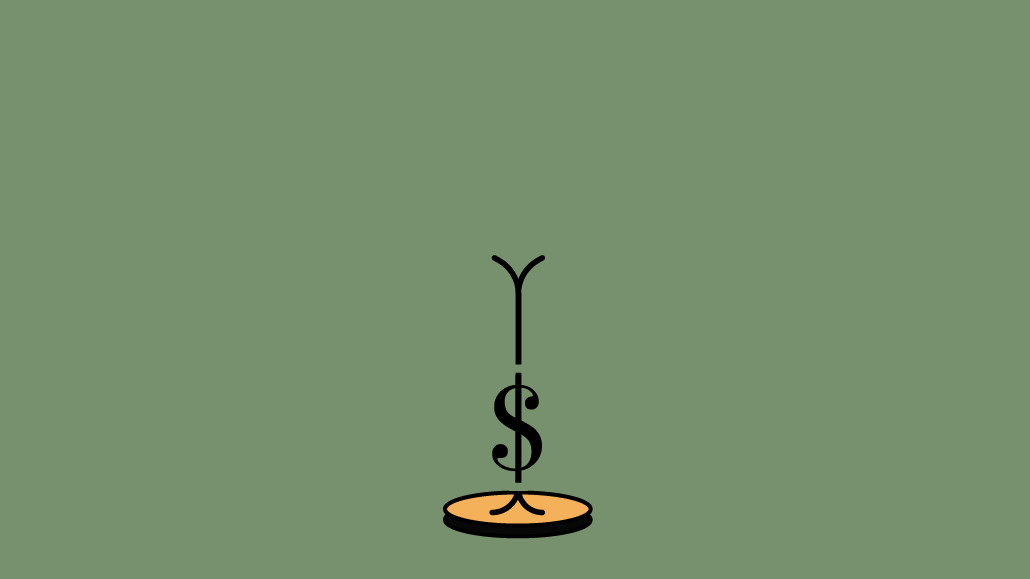Secure your place at the Digiday Media Buying Summit in Nashville, March 2-4
‘Influencers don’t necessarily feel scared’: How a cannabis brand is using influencers to reach shoppers on social media

Apple’s iOS 14’s data privacy update has complicated the social media marketing landscape for many. But for cannabis brands, that has long since been the case as many social media platforms enforce strict, low tolerance drug and alcohol policies.
It’s why Nugg Club, a California-based, cannabis-themed monthly subscription box has spent the last year building up its influencer marketing network to get in front of social media users without violating platform guidelines. For example, Facebook’s policy states that ads promoting the sale or use of recreational drugs are prohibited. There’s a similar policy at Twitter and Google-owned YouTube.
“The cannabis space is incredibly restrictive,” said Alex Milligan, co-founder and CMO of Nugg Club. “There’s not many channels that are viable. We’ve had to find other, more innovative ways of reaching our target audience and engaging with them.”
Enter influencer marketing. Overall, it’s a brand awareness play, but Nugg Club says influencer marketing offers low cost of customer acquisition and has so far been promising with increasingly more users reporting they discovered the brand through social media.
Nugg Club officially launched last April and spent the year working with about 1,200 influencers, on an organic, in-kind basis in which the company sends products in exchange for a voluntary social media post. This year, that number has been about 700 so far and the company works to vet each influencer along the way.
According to Victoria Baek, head of influencer marketing at MATTIO Communications, whose client is Nugg Club, the DTC brand also leverages an influencer affiliate program, paid content campaigns, contests, sponsorships and more. “Influencer marketing is a great vehicle to be able to measure the entire marketing funnel for [Nugg Club] to see who’s converting, who’s moving the needle in terms of seeing who’s getting more eyeballs on Nugg Club,” Baek said.
At present, about 50-60% of Nugg Club’s paid marketing budget is going directly to influencers, for posts on Instagram, TikTok and YouTube, per Milligan. The remainder of dollars are spread across experimental channels like paid search, direct mail, podcast advertising and display. (It’s unclear how much Nugg Club spends on media as the brand declined to offer further details.)
Recently, the brand has leaned into YouTube specifically for influencer unboxing videos, giving viewers a chance to see what’s in the subscription package and Nugg Club a better chance at converting them to a customer.
Historically, influencers have been hesitant to partner with cannabis or any other unorthodox brand out of fear of getting their own social media accounts banned. It can be a heavy lift to educate them on posting guidelines, government regulations as they vary state-by-state, said Victoria Bachan, managing director of influencer marketing agency Whalar’s creator management division, Whalar Talent.
“Sometimes they’re a little bit harder to find, but they are out there,” she said. “Luckily, there’s so many new social platforms out nowadays where influencers don’t necessarily feel scared.”
Restrictions from social media platforms and influencer hesitancy limit the influencer network pool for Nugg Club — something that’s been top of mind for Milligan as he looks to scale the DTC brand, but the co-founder is hopeful.
“As legalization comes down the pipeline, or at least decriminalization, these platforms get a little bit less stringent, and we can see the mainstream of cannabis influencer marketing,” he said.
Leveraging influencers for a traditionally taboo brand isn’t new, according to Sunil Verma, COO and co-founder of Captiv8 influencer marketing agency. However, more untraditional brands, like cannabis, are going this route as society becomes more accepting and there may one day be a national advertising standard, he said.
“Creators really help generate the ground swell because people can then see things like the usage, discounts, ease of use and it really helps make others move towards the brand,” Verma said of the Nugg Club’s influencer marketing strategy via email. Other cannabis brands like Eaze and MedMen have already broken into the mainstream, he said. And back in 2019, luxury retailer Barneys announced plans to open a cannabis lifestyle shop on the fifth floor of its Beverly Hills flagship store, per previous Digiday reporting.
In the future, Nugg Club has plans to expand and leverage experimental channels like influencer marketing to stay connected with shoppers and ahead of the competition, Milligan said.
More in Marketing

Pitch deck: Why Amazon believes its premium streaming inventory is worth the money
Amazon is pitching its DSP to make the case.

In Graphic Detail: The state of the marketing agency sector
Revenue figures from Omnicom, Publicis and Havas, and new employment stats, offer a snapshot on a quickly evolving industry.

Future of Marketing Briefing: The mental gymnastics of principal media
Welcome to the psychological CrossFit class of modern marketing. Here’s how marketers are learning to move through it.








